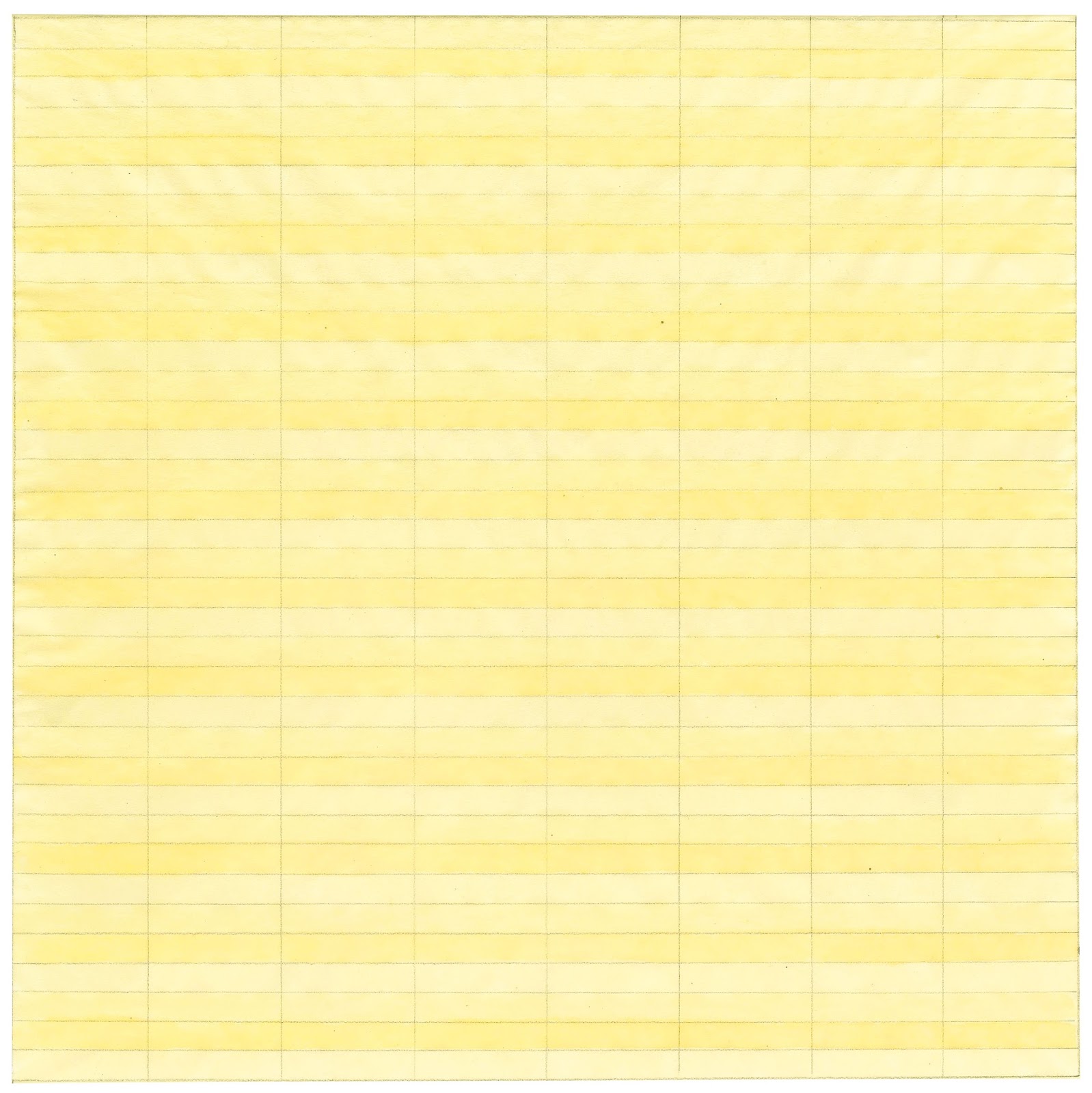14/08/15
Agnes Martin
Tate Modern
3 June – 11 October 2015
“My paintings have neither objects, nor space, nor time, nor
anything – no forms. When you give up the idea of right and wrong, you don’t
get anything. What you get is rid of everything, freedom from ideas and
responsibility.”
Agnes Martin was born in 1912, to Scottish Presbyterians, on a homestead in Saskatchewan,
Canada. Her early years recalled Little
House on the Prairie, living in hardship in an enormous and radically empty
landscape. She later denied that this – or, indeed, any biographical element –
played a part in her artwork. “Inspiration,” she said, “is the beginning, the
middle and the end.” This inspiration would come to her like the Immaculate Conception,
complete, but the size of a postage stamp. She would then scale this up to her
imposing six-foot square canvases – a little larger than her body, representing
her reach in the world.

Vehemently as Martin rejected autobiography, her
schizophrenia clearly had an impact on her work. Her grid-based drawings and
paintings might be read as a way of regulating or mediating the noise, but they
are neither symptom nor cure of her illness. She was a sophisticated artist and
a rigorous self-editor, who destroyed anything not quite up to the mark.
Martin denied being lesbian. She also denied being feminist.
Once she even claimed she was not a woman. Nevertheless, she is known to have
had romantic relationships with several other female artists and rumours even
suggest a liaison with her first dealer, Betty Parsons.
Having lived for many years in the Mexican desert and
painted right up to the very end, Martin died in 2004. The current exhibition
at Tate Modern offers a chance to experience first hand the uninhibited freedom
she sought to conjure through her work.
Untitled 1977
Watercolour and graphite on paper 9 x 9” (22.9 x 22.9 cm)
Private collection
Photograph courtesy of Pace Gallery
© 2015 Agnes Martin / Artists Rights Society (ARS), New York